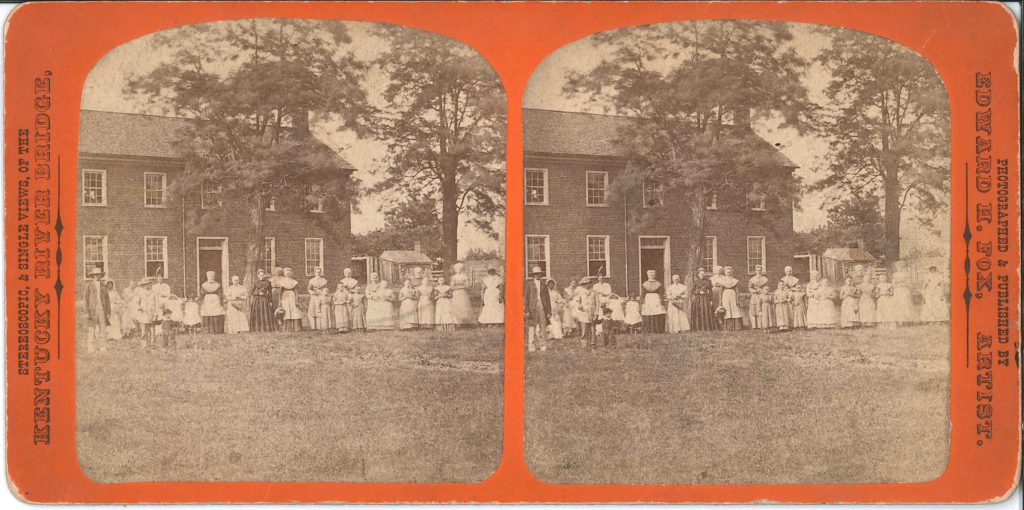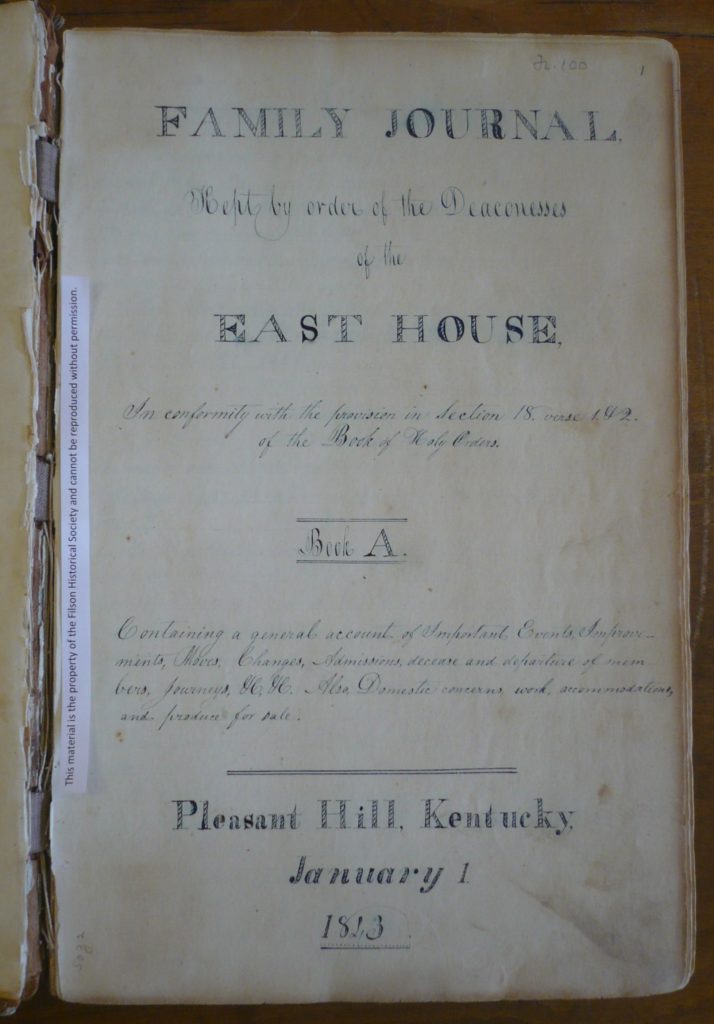Maggie McAdams, Education and Engagement Manager & Laura Webb, Program Team Coordinator
The Shakers, as a religious communal society, were dedicated to creating their own version of heaven-on-earth. They were an egalitarian society, practicing gender equality in their leadership structure and in their access to resources, and placed an emphasis on the betterment of community members to be beings worthy of the heavenly sphere. However, education— and more specifically literacy — was not always a top priority for this society.

From its earliest days, the Shaker faith was passed on and expressed as an oral tradition. Driven in part by the fact that Mother Ann Lee was illiterate, the Shakers were content to carry on their faith through spoken word and other expression. However, after Mother Ann passed away in 1784, just 10 years after bringing the faith to America, this changed drastically. With the charismatic leader gone, her followers, worried about what was to be lost, started to codify the faith by writing everything down and disseminating the information to the various Shaker communities. As part of these efforts, Joseph Meacham, a Shaker Leader in New Lebanon, NY, wrote down his views on education in the 1790s, claiming:
“Some are Created and Called to be more useful in things spiritual others in things temporal – […] but to Prepare them to be useful in the improvement of the talents which God hath given […] it would not be prudent for them to labour to make any great distinction in relation to their abilities and Callings…”
In this, Meacham is advocating for education for all to prepare them to be an informed and active citizenry. He is making the argument that education is a tool that empowers individuals to become productive members of the society.
By 1808, a school was established for the children at New Lebanon that focused primarily on spelling and language, and by 1832, the Shakers selected a superintendent to oversee all Shaker community schools. This new superintendent began to set standards for education in Shaker communities, and though there was always variation within individual communities, they began to establish a formal curriculum. Throughout the nineteenth century the curriculum was expanded from just reading and writing to include instruction in astronomy, algebra, music, and chemistry, among many other subjects. In the late nineteenth century, the Canterbury Shaker community produced a list referred to as the Classification of Classics for grades one through eight. Familiar titles such as Merchant of Venice and King Arthur were mixed in with books like From Wool to Cloth and The Story of Wheat. With this full list of reading material, it appears that the value and diverse nature of Shaker education came a long way over the course of the nineteenth century.
While education focused mainly on children in Shaker communities with the Children’s Orders, often called School Families, acting as school houses, all individuals were taught the fundamental skills of reading and writing upon joining.
Evidence of the importance they placed on education and literacy can be found throughout the Shaker’s written record. The sheer volume of journals and letters speak to their impressive mastery of the written word. Both men and women were called upon to keep journals for the various families. In this excerpt from the East Family Deaconess’s Journal, written during the Civil War on October 11 and 12, 1862, you can see this mastery for yourself:
“Such as day as this has never been witnessed on Pleasant Hill before and God grant that it never may again…How awful to think of a wicked and bloody battle occurring in the midst of Zion on earth! Whoever would have thought that this secluded and sacred spot of truly Pleasant Hill, would ever have been surrounded by the embattled legions within hearing distance in almost every direction from this central point and the waring hosts traversing our streets and premises to and fro day and night with their weapons of death, guns, swords, and bayonets gleaming in the sun…Where the clash of arms and din of war proclaims the raging thirst for blood, power and glory, that fills the ambitious human (Alias inhuman) breast! And yet that we should have escaped with comparatively so little damage clearly implies, that whatever of evil may be among us (and God knows there is enough,) there is still a spark of light, a remnant of faith, and a seed of truth, and a righteous few in the heritage of God which he holds in the bottom of his hand…”

As an organization, and as scholars, we are lucky that so many Shaker journals were preserved for us to reference today, and so grateful that the Shakers placed such importance on education! Visit Shaker Village of Pleasant Hill to learn more about Shaker education in our Back to School: Shaker Children’s Orders daily program.